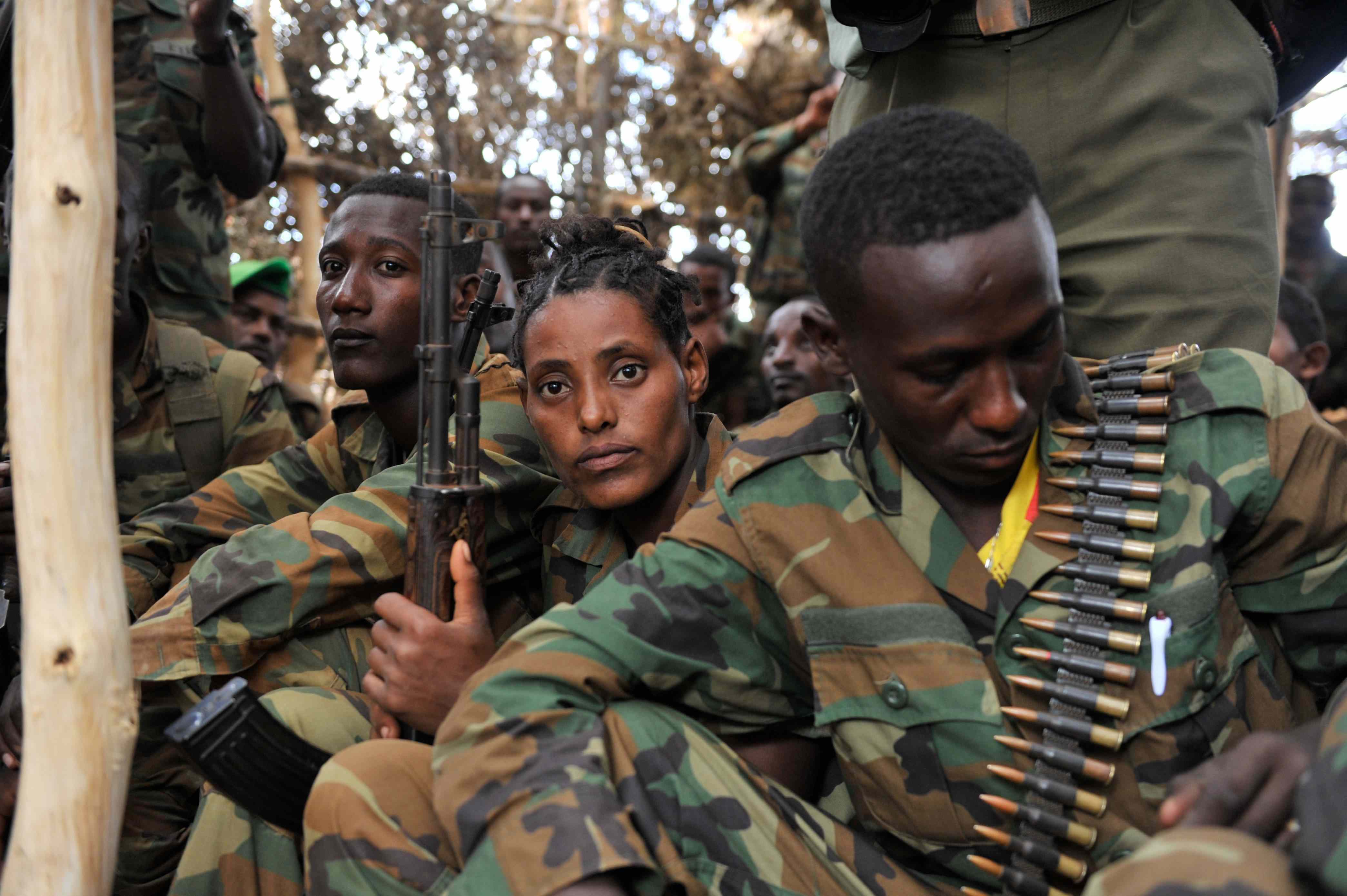Editor's note: Lucas Leiroz is a research fellow in international law and geopolitical consultant focused on international trade and agribusiness. The article reflects the author's opinions and not necessarily the views of CGTN.
Terrorism is advancing strongly on the African continent and the West remains silent.
Recently, the terrorist group al-Shabab, a regional branch of ISIL, carried out a brutal attack in Palma, Mozambique, taking control of most of the city. Dozens of people died or were injured. As a result of the attack, the French company Total, which is exploring for natural gas in the region, suspended its activities and is about to leave the country, abandoning its facilities as they are vulnerable to terrorist occupation.
This is not al-Shabab's first attack in areas close to the natural gas reserves. Since 2017, some 2,500 people have died in terrorist attacks and more than 70,000 Mozambicans have moved from their native regions and entered migration routes. Most of the attacks occur in northern regions, close to the border with Tanzania, where some of the largest untouched natural gas reserves on the planet are found.
The strategic location of the attacks has a specific purpose: to control gas zones and build a terrorist base in Africa. The main problem is that this base would not be like the others, but much more powerful, considering that it would guarantee terrorists not only territory, but the custody of an important natural resource and the possibility of exploring it. The terrorists would not have so many challenges for exploration, since the French company Total would leave its facilities in perfect condition, ready to be occupied and used. With an army, a territory, a population, and ample economic resources, al-Shabab has almost all the means necessary to form a true caliphate – a state or political entity representing ISIL in Africa.

Ethiopian soldiers serving under the African Union Mission in Somalia listening to a speech by the AMISOM Acting Force Commander in Hiran region, Somalia, June 10, 2016. /AFP
Ethiopian soldiers serving under the African Union Mission in Somalia listening to a speech by the AMISOM Acting Force Commander in Hiran region, Somalia, June 10, 2016. /AFP
Historically, France is the nation that most invests in Africa's security, but this scenario has changed recently. The failure of French strategies for Africa is evident with the situation in the Sahel, with the advance of several radical Islamist militias. In addition to a failure, France is simply no longer interested in helping Africa. The growing French interest in Lebanon, the internal problem with radical Islamist communities, the strained relations with Turkey and the concern about the forthcoming elections seem to be Macron's main focus of attention today. As a result, Africa is increasingly alone in defense and security.
In parallel, the interest of terrorists in Africa is increasing steadily. The reasons are many: Africa is rich in diverse natural resources, divided between nations with much less military and institutional strength and which receive much less attention from the international media. It is important to note how the activities of terrorists in Africa have increased precisely since 2017, in parallel with the decline of ISIL in Syria. In fact, losing space in the Middle East, terrorists invest in Africa and, as always, the West is not concerned with this continent and remains inert.
In search of support, African nations have been looking for new international defense partners. Russia is an example of this search, with support from Moscow being requested by the African Union several times recently. However, little has been said about the security potential that China represents for this continent.
China is the country that invests heavily in Africa. While the West simply ignores the existence of this continent, China invests extensively in infrastructure and medical supplies, contributing to African development.
In military cooperation, Africa has a lot to gain from China. The first Chinese military base abroad was built in an African country, Djibouti, in 2017, which shows the success of defense cooperation relations between Africa and China. Since then, several defense projects have operated, mainly in information technology and arms supply. This potential for cooperation must be realized by African states if they really want to prevent the emergence of a new country on their continent – an Islamic caliphate, the base and concentration of ISIL.
Mozambique has reduced its relations with China due to debt built up from Chinese investments in the country. But China has no interest in exploiting Africa. This is visible with the recent 2 percent forgiveness of Mozambique's debt. So, if the African country approaches China, it will get immediate help. In the same sense, Tanzania, a nation bordering Mozambique, also rich in gas and a victim of terrorism, has strong ties with China, being one of the biggest soy suppliers to Beijing and will certainly turn to China to fight al-Shabab as soon as it detects a real threat to its sovereignty.
Clearly, China wants the best for Africa. As happened when Russian support was requested, China will also help Africa – and this is even more evident considering the recent military links between Russia and China. Sino-Russian cooperation to combat Islamist radicalism in Africa is the only way to prevent a real catastrophe.
(If you want to contribute and have specific expertise, please contact us at opinions@cgtn.com.)

